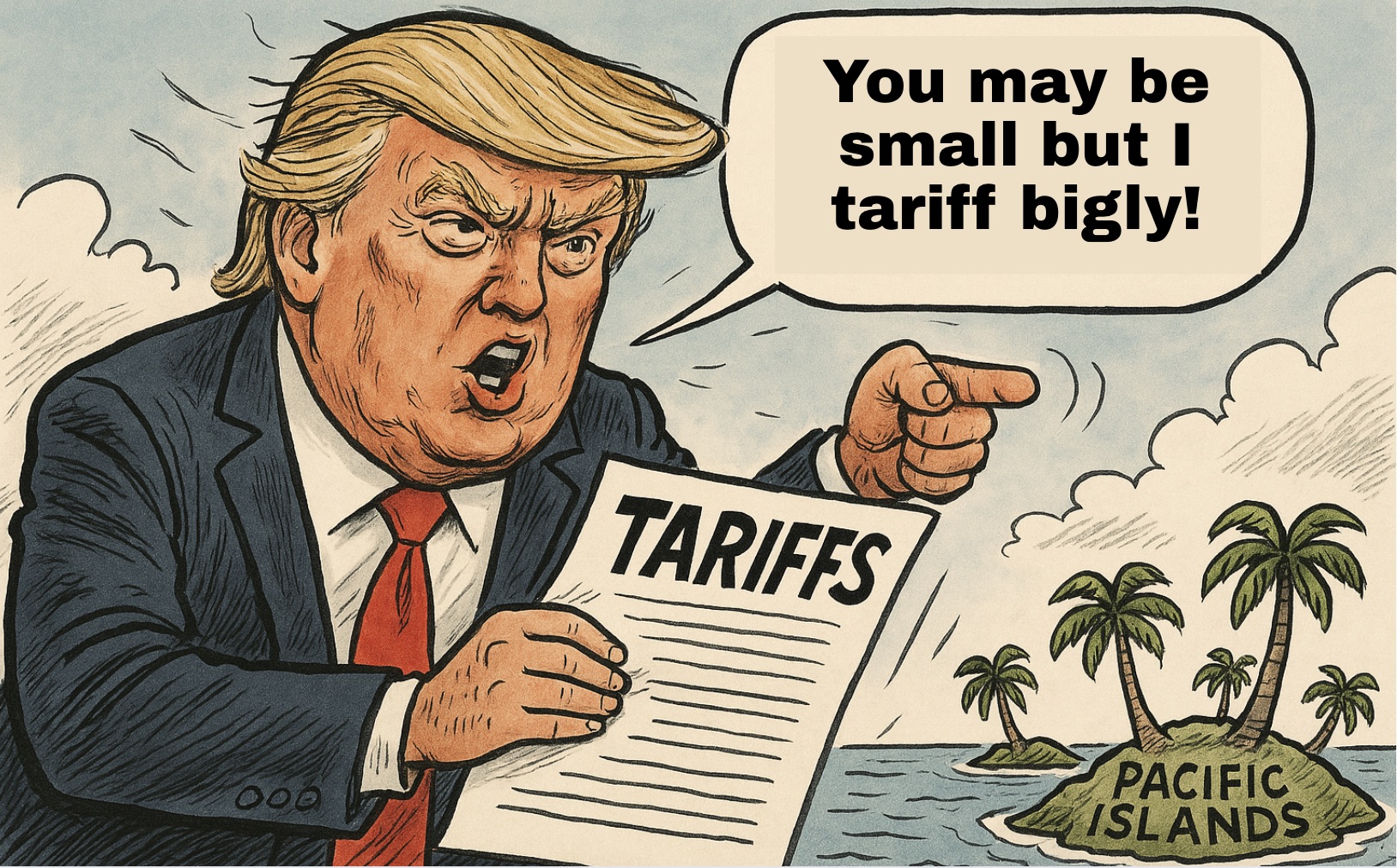The Trump administration’s sweeping imposition of new tariffs on a wide range of imports has triggered a global economic shake-up — and small Pacific Island nations are finding themselves caught in the fallout. While not direct players in major global trade wars, these island economies are highly dependent on stable access to international markets and are now grappling with unintended consequences of U.S. protectionist measures.
Fiji has been among the hardest hit. With a 32 per cent tariff now placed on its exports to the United States — the highest among all Pacific nations — its trade competitiveness has been severely undermined. Fiji’s key export items to the U.S., such as bottled water, garments, and niche agricultural goods, may now face prohibitive costs that push them out of an already narrow market.
“This move is punitive, unfair, and without proper justification,” said Fiji’s Deputy Prime Minister and Minister for Finance, Professor Biman Prasad. “It undermines the principles of fair trade and places undue burden on developing countries like ours. We are seeking clarification through diplomatic channels and will continue to advocate for our producers and exporters.” (Radio New Zealand)
Other Pacific nations are also reeling from similar tariffs. Vanuatu has been hit with a 22 per cent tariff, while Nauru faces a 30 per cent duty on its U.S.-bound exports. These countries, already struggling with high freight costs and limited shipping access, now find their margins further squeezed by U.S. trade policy changes.
Tariffs are also affecting the cost of imports. Many Pacific nations import American goods ranging from agricultural products to machinery. With the cost of these rising due to retaliatory tariffs and disrupted supply chains, prices on the ground in island nations are tipped to increase.
As global trade tensions intensify, Pacific Island countries are being reminded of the urgent need to reduce reliance on any single market. While the Trump-era tariffs may have been aimed at economic giants, it is the small, trade-dependent nations of the Pacific that are bearing some of the heaviest unintended consequences.
The imposition of U.S. tariffs has placed Pacific Island nations in a precarious position, underscoring their susceptibility to global economic policies over which they have limited control. As these nations navigate the repercussions, the emphasis is on strategic, collective action and the pursuit of diversified economic partnerships to mitigate the adverse effects of such international trade measures.



